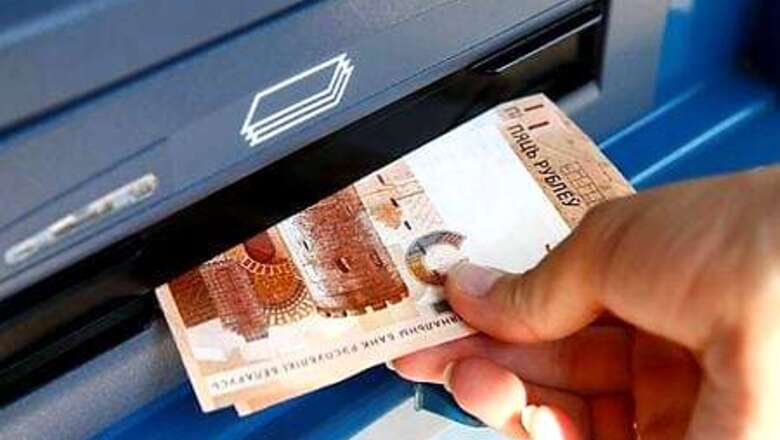
views
MINSK: The Belarusian central bank will not introduce capital controls to prevent the depreciation of the Belarusian rouble as these would be counterproductive, central bank board member Dmitry Murin told Reuters on Tuesday.
A political crisis sparked by mass protests against President Alexander Lukashenko has dragged the rouble to record lows against the euro this week and sent Belarusians scrambling to buy foreign currency at exchange points.
On Tuesday, the rouble weakened further, losing 1.2%-1.5% against the dollar and the euro. It has lost 30% so far this year against the euro.
But the central bank is not contemplating imposing restrictions, Murin said, adding: “We believe that the introduction of restrictions will have the exact opposite effect.”
Asked if the National Bank of Belarus could return to the obligatory sale of foreign exchange earnings, introduce targeted sales of foreign currency, restrict deposits or foreign exchange settlements, Murin answered in the negative.
Belarus had started lifting such restrictions five years ago.
DEBT LEVELS “COMFORTABLE”
Belarus plunged into turmoil following Lukashenko’s contested victory in an August 9 presidential election.
His opponents say the vote was rigged, sparking waves of street protests and strikes that pose the biggest challenge to his 26-year rule. The European Union is gearing up to impose new sanctions on Minsk.
Murin said however the central bank would not artificially keep the exchange rate at any specific level, though he confirmed the central bank had conducted FX interventions in recent days.
The country’s gold and foreign exchange reserves stood at $8.857 billion at the start of August, data shows, but the interventions likely caused these to shrink, Murin acknowledged.
Despite declining reserves and some $3 billion in maturing foreign debt over the next 12 months, Murin saw debt levels as manageable.
“The payments are quite substantial, but at the moment the foreign currency balances of the Ministry of Finance exceed the forthcoming payments by 1.6 times,” he said. “Overall, the debt level is within comfortable limits.”
Murin also said the outflow of deposits from banks remained moderate and if required, the central bank may consider supporting banks with forex refinancing tools.
Murin said he saw no reason for now to raise interest rates but did not exclude that possibility for the future. The main interest rate is at 7.75% and the next monetary policy meeting is due in October.
Disclaimer: This post has been auto-published from an agency feed without any modifications to the text and has not been reviewed by an editor




















Comments
0 comment